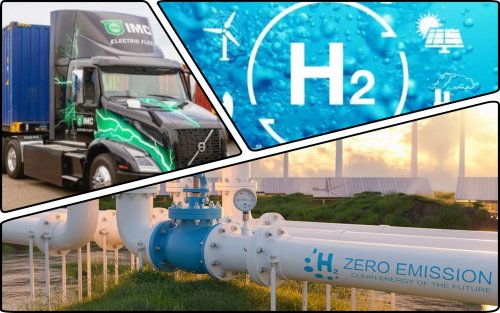Research by energy analysts at Cornwall Insight found that using hydrogen to heat homes would increase energy bills by around 70%.
They believe that while hydrogen has a role to play in decarbonisation, at current and projected costs it is uneconomical to use 100% hydrogen fuel for heating homes, reports The Guardian .
The research was commissioned by the renewable energy charity MCS Foundation.
It was noted that in Great Britain, ministers are ready to allow the mixing of hydrogen with fossil gas in the country's gas networks, as a way to reduce carbon emissions from heating homes. They are also looking at the potential large-scale introduction of hydrogen for gas boilers in homes from 2026.
Proponents of hydrogen argue that it can be used without the need to upgrade the UK's existing network of gas pipes and gas boilers, which make up the vast majority of home heating systems in most parts of the country.
The article stressed that the use of hydrogen raises serious concerns, and some experts warn that it faces technical difficulties that may prove insurmountable.
"Hydrogen heating from renewable energy sources is six times less efficient than using the same electricity in a heat pump. I don't know any serious energy analyst not connected to the gas industry who thinks that hydrogen heating will become necessary." – said Michael Liebreich, chairman of Liebreich Associates and founder of analyst firm Bloomberg New Energy Finance.
In addition, the material reminded that there are different colors of hydrogen. Unlike green H2, which is produced from RES, blue hydrogen is produced from fossil fuels. And if the carbon dioxide produced during production is not captured and stored, there is no emission savings.
The authors noted that these concerns have been largely muted by intense lobbying by fossil fuel companies, which see hydrogen as an alternative source of revenue with purported low-carbon goals.
The charity MCS estimates that there are currently at least 120 paid hydrogen lobbyists in the UK Parliament. Major energy companies, including Shell and BP, as well as a host of smaller companies and startups, are promoting hydrogen as a sustainable fuel.
Cornwall Insight predicted that blending hydrogen with gas would lead to a much lower rise in home heating prices, around 5% in the short term and up to 2050. However, this assumes the use of natural gas once the UK has moved away from fossil fuels.
Earlier, EcoPolitic wrote, that the development of the hydrogen sector will require the minimization of H2 leaks, to maintain the maximum climatic advantages. Although it has no direct effect on the climate, its interaction with other pollutants is about 11 times that of carbon dioxide in the 100-year global warming potential.
As EcoPolitic previously reported, the oil and gas company Shell plans to build in Rotterdam, the Netherlands, the largest plant for the production of green hydrogen in Europe Holland Hyrdoge, which will produce 60,000 kilograms of hydrogen per day.




